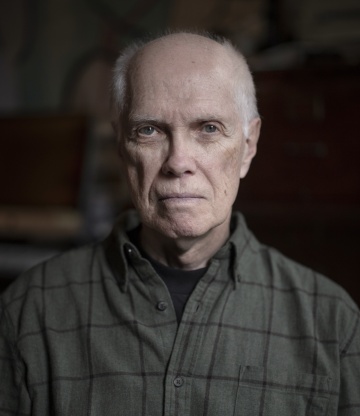Columbia College | Columbia University in the City of New York
Take Five with Ron Padgett ’64

Ron Padgett ’64
Photo by Pascal Perich
What were you like when you arrived at Columbia?
In school in Oklahoma, where I grew up, I had been something of a big fish in a small pond. New York came as an enormous excitement, but it was intimidating, too, which I pretended to ignore. I wasn’t quite ready to be humbled. After all, being the only person in 1960 walking around in Levis and cowboy boots made me special, no? Uh ...
What do you remember about your first-year living situation?
An only child, I was apprehensive about having to share a dorm room, but my roommate turned out to be very agreeable (and he spent every weekend at home in Dobbs Ferry). However, the food in the John Jay cafeteria was so inedible that I canceled my meal plan. Spending my meal money on movies and books, I dropped from 145 to 125 pounds that year.
What class do you most remember and why?
I had some outstanding teachers — among them F.W. Dupee, Lionel Trilling CC 1925, GSAS’38, Andrew Chiappe CC 1933, GSAS’39, Susan Taubes and Theodor Gaster — but the star was Kenneth Koch, whose Literary Humanities and “20th-Century Comic Literature” classes, along with his mentorship, changed the course of my life.
Did you have a favorite spot on campus, and what did you like about it?
By renting an apartment far downtown for my sophomore year, I flouted the school’s rule about living on campus. I wanted to be more in New York City. But there were several memorable spots, imbued with mystery and otherness: the forbidden network of tunnels, the far reaches of Butler’s stacks and the steps of Low Library in the pink light of dawn.
What, if anything, about your College experience would you do over?
I’d take classes from Meyer Schapiro CC 1924, GSAS 1935 and Moses Hadas GSAS 1930, and I wouldn’t arrogantly skip the final exams in art appreciation and music appreciation simply because I was more interested in writing poetry and sleeping.

